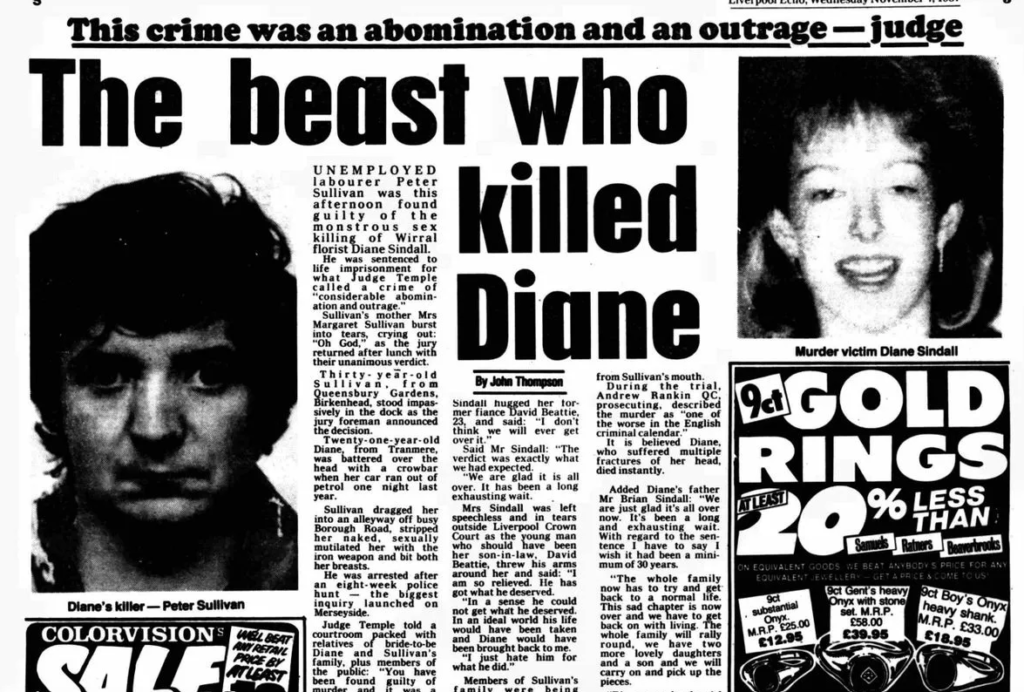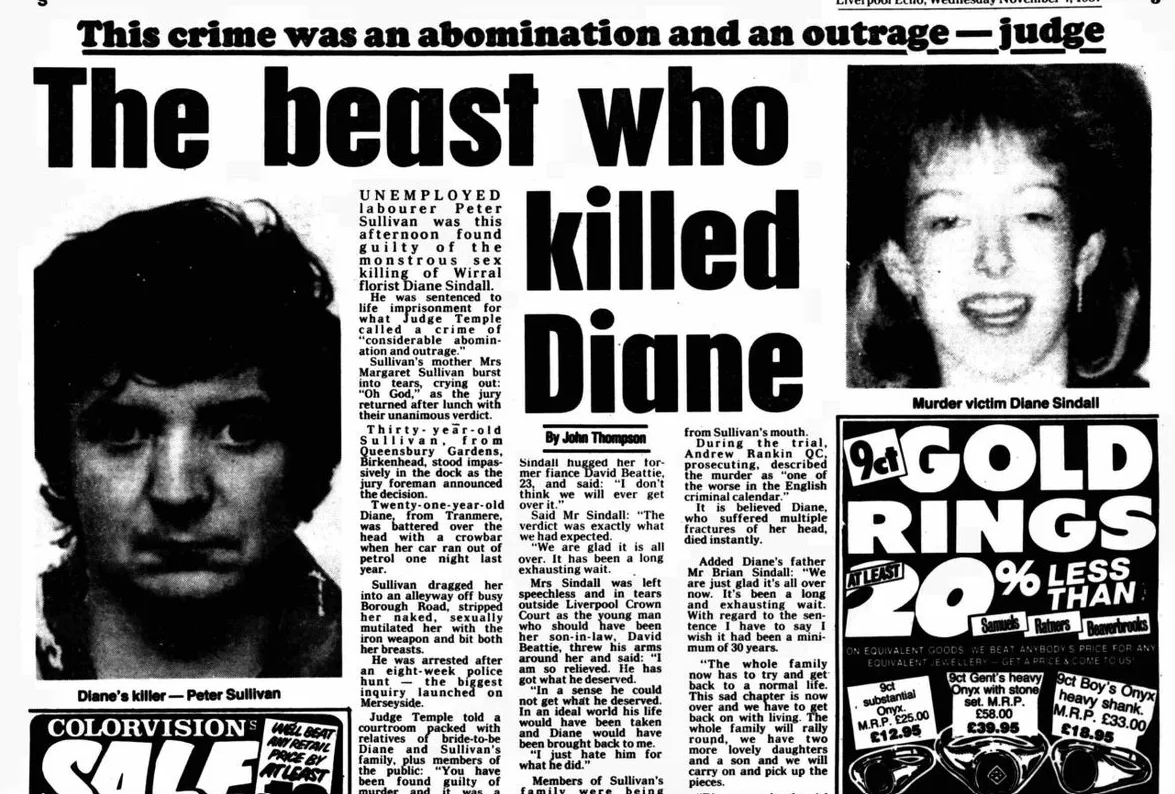A man who has spent 35 years in prison has had his appeal referred to the Court of Appeal as a result of new DNA evidence 16 years after he first applied to the miscarriage of justice watchdog. Peter Sullivan was found guilty in 1987 of the murder of Diane Sindall and given a life sentence.
Diane Sindall was found dead in August 1986 after leaving work in Bebington, Merseyside and Sullivan was convicted the following year. As reported in the Liverpool Echo, on the night in question, Sullivan had been playing darts at thee Crown Hotel and, it was said, he had been drinking heavily after his team lost and he left the pub at around 11.30pm. ‘There, for reasons unknown, he armed himself with a two-foot-long iron crowbar he had borrowed, stuffed it inside his jacket, went back out again and wandered off in the direction of nearby Borough Road.’
Sullivan applied to the Criminal Cases Review Commission (CCRC) for a second time in March 2021 raising concerns about his interviews by the police, bitemark evidence presented in his trial, and what was said to be the murder weapon. After consulting experts, the CCRC obtained DNA information from samples taken at the time of the offence. As a result, a DNA profile was obtained which did not match Mr Sullivan. The CCRC has now sent Mr Sullivan’s conviction back to the courts.
According to the CCRC, there is also evidence to suggest there were possible breaches of the Police and Criminal Evidence Act 1984 in relation to the interviews as Sullivan was not provided with an appropriate adult and was denied initial legal representation.
Sullivan previously applied to the CCRC in 2008 questioning DNA evidence. But according to the CCRC, ‘experts from the Forensic Science Service advised that any further testing would be very unlikely to produce a DNA profile’. The CCRC said: ’Mr Sullivan’s case was not referred to the Court of Appeal by the CCRC. When Mr Sullivan applied to the CCRC in 2008 he still had a direct avenue of appeal open to him.’
Sullivan sought leave to appeal directly in 2019, without CCRC involvement, but this was rejected by the Court of Appeal in 2021. The Court determined that the bitemark evidence, on which he was appealing his conviction, was not central to the prosecution at trial, but the CCRC has now found evidence which suggests that it was.








